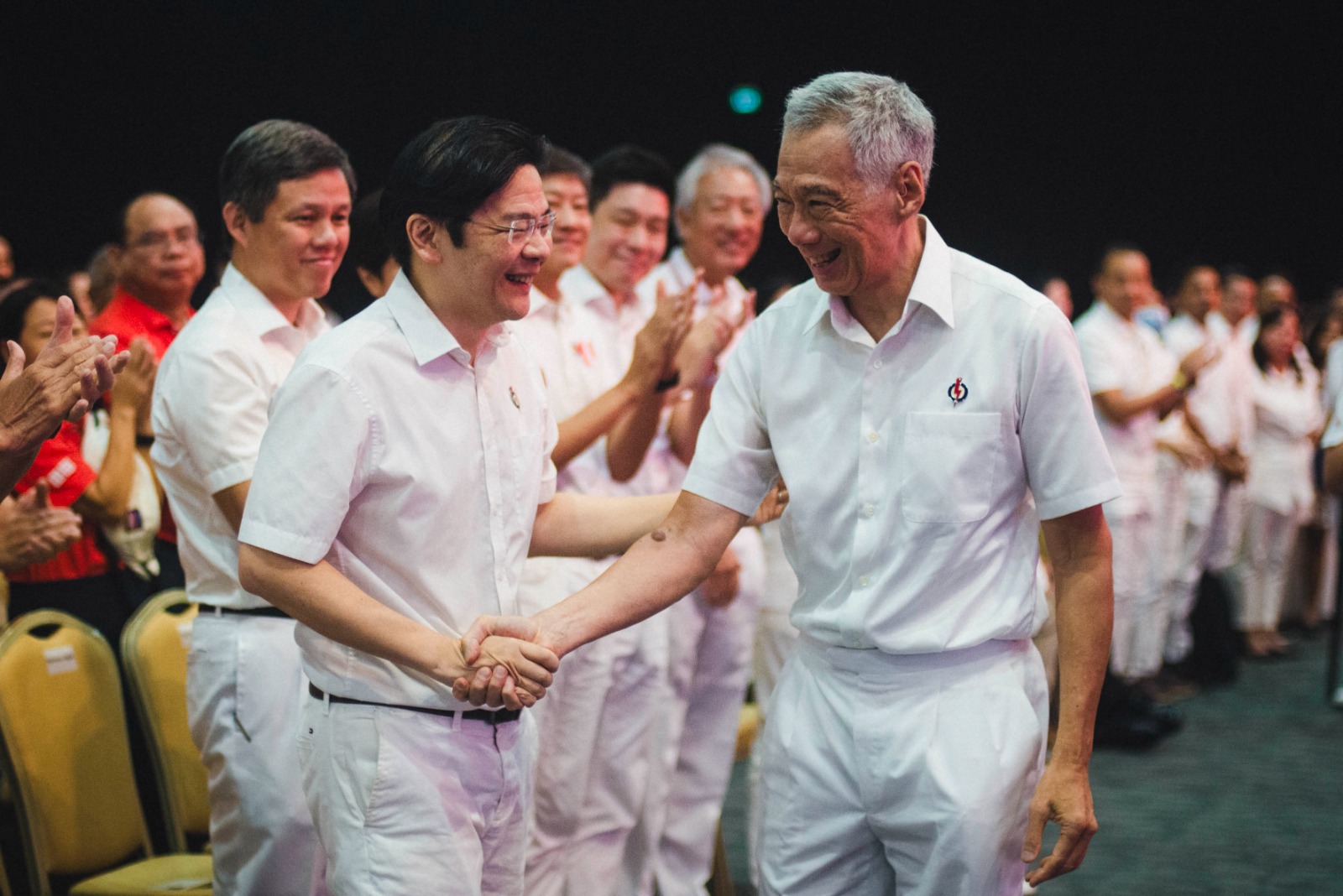The BGA Singapore Team, led by Managing Director Nydia Ngiow, wrote an update on Singapore’s leadership transition.
Context
- Singapore Prime Minister Lee Hsien Loong announced April 15 that he will step down from office on May 15, 2024. Deputy Prime Minister and Finance Minister Lawrence Wong will be sworn in as Singapore’s fourth prime minister on the same day.
- This announcement does not come as a surprise and is in line with the transition timeline Lee laid out in November 2023 — that he would hand over the premiership to Wong no later than the ruling People’s Action Party’s (PAP) 70th anniversary in November 2024. The 72-year-old Lee originally said in 2012 that he did not wish to be prime minister beyond the age of 70. Unexpected delays, including from his original successor Heng Swee Keat stepping aside and the COVID-19 pandemic, prevented that from happening. Although there is no best time for Lee to step down given the increasing cost of living and volatile geopolitical tensions, BGA understands that Iran’s attack on Israel over the weekend and concerns of a wider war in the Middle East pushed leaders to accelerate the announcement and timeline.
Significance
- Looking ahead, Wong will likely continue Lee’s consultative approach to policymaking. He already started doing this with his Forward Singapore initiative to strengthen the social compact; the recent Budget 2024 had measures that reflected recommendations from public consultations, such as providing more pathways for students to succeed and support packages including handouts, vouchers and rebates. Despite a mostly stable post-pandemic economic recovery, the continuity of these packages signals a willingness to implement more social welfare measures. In his April 15 LinkedIn announcement, Wong appealed to Singaporeans to share their ideas, passions and dreams and work with him and his team to build a better future for Singapore.
- Given that the next general election was already due to take place no later than November 2025, BGA sources indicate that Wong could call for a general election as early as September 2024, before the PAP meets to elect its new central executive committee in November. Doing so would allow Wong to confirm that he has a mandate and start his tenure with a relatively clean slate, paving the way for him to become PAP secretary-general.
Implications
- In true Singapore fashion of not rocking the boat, companies will have a month’s notice to prepare for the upcoming handover. Although businesses can expect continuity in Singapore’s political and economic landscape, they should nonetheless be prepared for the ensuing Cabinet changes and imminent general election in the coming months. There may be some tweaks regarding stakeholder engagement, but major changes are unlikely because most of the fourth-generation leaders are expected to remain and play key roles in Wong’s Cabinet.
- Although Wong’s Cabinet is expected to be sworn in with him May 15, BGA does not foresee a major Cabinet reshuffle if elections are to follow shortly after. A minor Cabinet reshuffle will likely take place in May to reflect the changes in leadership, with a more extensive one to follow after the elections when Wong has a better sense of the situation.
- Lee is widely expected to take on the role of senior minister, in line with his predecessors, given the available role vacated by now-President Tharman Shanmugaratnam.
- A key question is whether one of the two assistant secretary-generals — Chan Chun Sing and Desmond Lee — will be tasked to fill the deputy prime minister role Wong would vacate, alongside Heng Swee Keat, or if that decision will be made later down the road.
We will continue to monitor and keep you updated on relevant political developments in Singapore. If you have any questions or comments, please contact BGA Singapore Managing Director Nydia Ngiow at nngiow@bowergroupasia.com.
Best regards,
BGA Singapore Team

Managing Director, Global Trade and Economics
Nydia brings over a decade of experience working at the forefront of international affairs and international trade issues in the Asia-Pacific, with the majority of her career prior to BGA spent working for the Singapore government. Nydia most recently managed the China Program at the American National Standards Institute (ANSI) in Washington, D.C., where she brought together technical, business and policy leaders to find solutions to issues affecting U.S.-China trading relations to strengthen U.S. market access in China. She provided member organizations with coverage of policy and reform issues, and furthered ANSI’s relationships with counterpart organizations in China. Positioned in ...
Read More

























